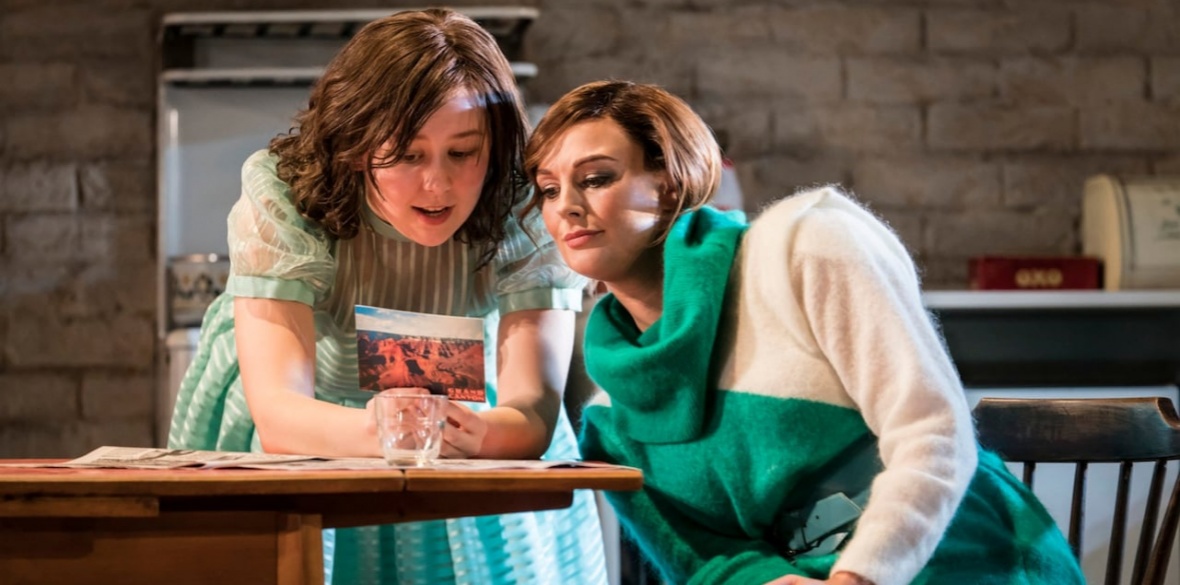This is the last article you can read this month
You can read more article this month
You can read more articles this month
Sorry your limit is up for this month
Reset on:
Please help support the Morning Star by subscribing here
IT’S somewhat depressing to watch a play almost four decades old, set in a particularly politically turbulent time in British history, and ponder at the end of it how little things have changed.
But that’s perhaps why Top Girls is one of Caryl Churchill’s most celebrated works, one that has been regularly performed throughout Britain since first written.
The National’s production is a far cry from the play’s Royal Court 1982 premiere, when a cast of six performed all 18-odd roles. It’s one of the first professional revivals to use different actors to play all the various characters and, while this might avoid any momentary confusion for audiences, it doesn’t necessarily do the play justice.
The legendary female characters from the past in the first act figuratively represent the struggles and repression faced by their contemporary counterparts, a device which points up how little has changed.
Opening in a restaurant where protagonist Marlene is hosting a celebration of her promotion to managing director of the employment agency Top Girls — pipping her jealous male colleague to the post — the scene becomes increasingly surreal. Each of Marlene’s guests are revealed to be famous female historical figures, some fictional, who discuss their pasts, achievements, battles and suffering.
Marlene is the ultimate product of Thatcher’s Britain. Having abandoned her “poorer” life in rural Suffolk, as well as her child, she moves to London to seek her fortune, embracing Thatcher’s individualism.
The final act returns to a year previously, when Marlene turns up on her sister Joyce’s doorstep in Suffolk. She’s now raising Marlene’s daughter Angie — played brilliantly by newcomer Liv Hill — as her own and the ensuing confrontation between the two sisters over their lives and political differences exposes the bitterly divided society Thatcher precipitated.
The acting is superb all round, with Lucy Black capturing Joyce’s struggle between her own fight for independence while dutifully raising a child and looking after her sick mother and Katherine Kingsley’s Marlene is played out with the brashness and confidence her character epitomises. Even so, there’s a touching level of poignancy as she deals with the loneliness her fierce pursuit of success and money has brought.
It’s certainly an epic production, with a hyper-realistic set from Ian MacNeil. But perhaps it’s too epic for Churchill’s work — the dazzling settings are almost too distracting for a play which relies more on words and less on background.
But it’s a wonderful production and well worth seeing — if you can manage to get tickets for under the eye-watering £68 top price.
Runs Until June 22, box office: nationaltheatre.org.uk












